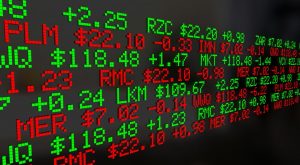
You worked hard, made some sacrifices, and saved up so you could retire comfortably. This doesn’t mean financial planning stops now. It’s important to actively manage your portfolio and maybe re-balance your investments occasionally to make your money last throughout your retirement.
There are two important questions to ask yourself to determine the best approach to managing your money after retirement:
* How can you invest your money while avoiding risks?
* How much can you afford to withdraw to live comfortably without running out of money?
Start by establishing a budget. Make a list of all your monthly expenses to get an idea of how much you will have to withdraw from your portfolio.
If you retire early or find that your portfolio cannot sustain your lifestyle, rather than using up all your money prematurely, it’s smart to look for another way to cover your monthly expenses until you can rely on income from your investments.
Using Annuities
If you find that payouts from fixed income securities or dividends from stocks cannot cover your monthly living expenses, consider getting an annuity. Insurance companies offer annuities that provide you with a monthly payment.
With annuities, you can choose a guaranteed payout term for a shorter time period, such as 5 or 10 years to give your other investments time to grow, or for life if that’s what you prefer.
You also have the option to start your payouts after a single investment, or delay the start of your payouts while you make additional monthly payments to add to this investment. Plus, you can purchase an annuity at any time, so you could obtain more annuities as time goes on to increase your monthly income.
Purchasing an annuity means you can live comfortably without draining your portfolio and can afford to take more risks with your investments. By taking some wise risks to grow your portfolio, you may be able to afford a much more comfortable lifestyle later on.
Using Cash Equivalents
If you don’t feel that purchasing an annuity is a good option for you, consider this alternative plan:
1. Put enough money aside in cash equivalents to cover your expenses for a few years. Invest in a mix of savings accounts, certificates of deposits, and money market funds.
2. Start withdrawing from your portfolio after a few years. Your investments in cash equivalents will allow you to be comfortable for a while even if the stock market doesn’t perform well.
3. Wait until the stock market picks up again to sell some of your stocks. Use the returns to invest in more cash equivalents if you still don’t want to withdraw from your portfolio to cover your living expenses.
Additional Investment Options and Considerations
Adding more investment vehicles to your portfolio might become necessary at some point.
These two investments might work for you:
1. Short-term funds. Look for short-term funds with low risks so you can get returns without tying up your money for too long. You can buy and sell mutual funds at any time.
2. Stocks. Stocks can be a lucrative investment, but it’s wise to dedicate only a small portion of your portfolio to this asset class once you’re retired. If you decide to invest in stocks, look for ways to lower your risks, such as investing in several industries or even in foreign markets.
* Some blue chip stocks are also known to provide regular dividends in addition to growth. You can use these dividends either for monthly income or to increase your investment. Your financial provider can help you identify these stocks.
The best financial management strategy depends on your situation and your recurring monthly expenses. Budgeting is important to assess how much you need to withdraw to be comfortable. Based on your expenses and your portfolio returns, you may need to re-balance your portfolio from time to time.
Ideally, you should not have to re-balance your portfolio more than once a year to give your current investments time to show a profit. If you’re hesitating between annuities and cash equivalents, or aren’t sure how to live comfortably without draining your portfolio too quickly, your best option is to seek help from a financial professional.





